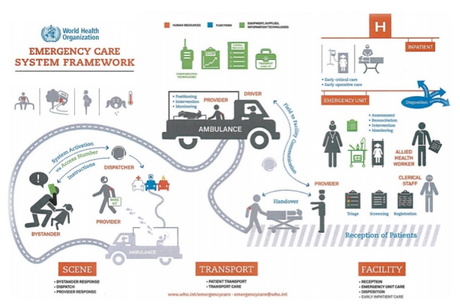By: Ryan Joseph, DO, GEC Curriculum Director Cultural disparities and reactions may seem confusing to…
New Research Published: Task Shifting To Improve Outcomes
GECC is very proud of Dr. Stacey Chamberlain’s recent publication in PLoS One, a peer reviewed, open access, scientific journal published by the Public Library of Science. Her study, Mortality Related to Acute Illness and Injury in Rural Uganda: Task Shifting to Improve Outcomes, describes the outcomes of emergency patients treated by midlevel providers in a resource-limited setting. The fatality rates are lower than previously published regional rates. These findings suggest this model of task-shifting can be successfully applied to acute care in order to address the shortage of emergency care services in similar settings as part of an integrated approach to health systems strengthening.
Background
Due to the dual critical shortages of acute care and healthcare workers in resource-limited settings, many people suffer or die from conditions that could be easily treated if existing resources were used in a more timely and effective manner. In order to address this preventable morbidity and mortality, a novel emergency midlevel provider training program was developed in rural Uganda. This is the first study that assesses this unique application of a task-shifting model to acute care by evaluating the outcomes of 10,105 patients.
Findings
Overall, three-day mortality was 2.0%. The most common diagnoses of patients who died were malaria (n=60), pneumonia (n=51), malnutrition (n=21), and trauma (n=18). Overall and under-five CFRs were as follows: malaria, 2.0% and 1.9%; pneumonia, 5.5% and 4.1%; and trauma, 1.2% and 1.6%. Malnutrition-related fatality (all cases <18 years old) was 6.5% overall and 6.8% for under-fives.


This Post Has 0 Comments